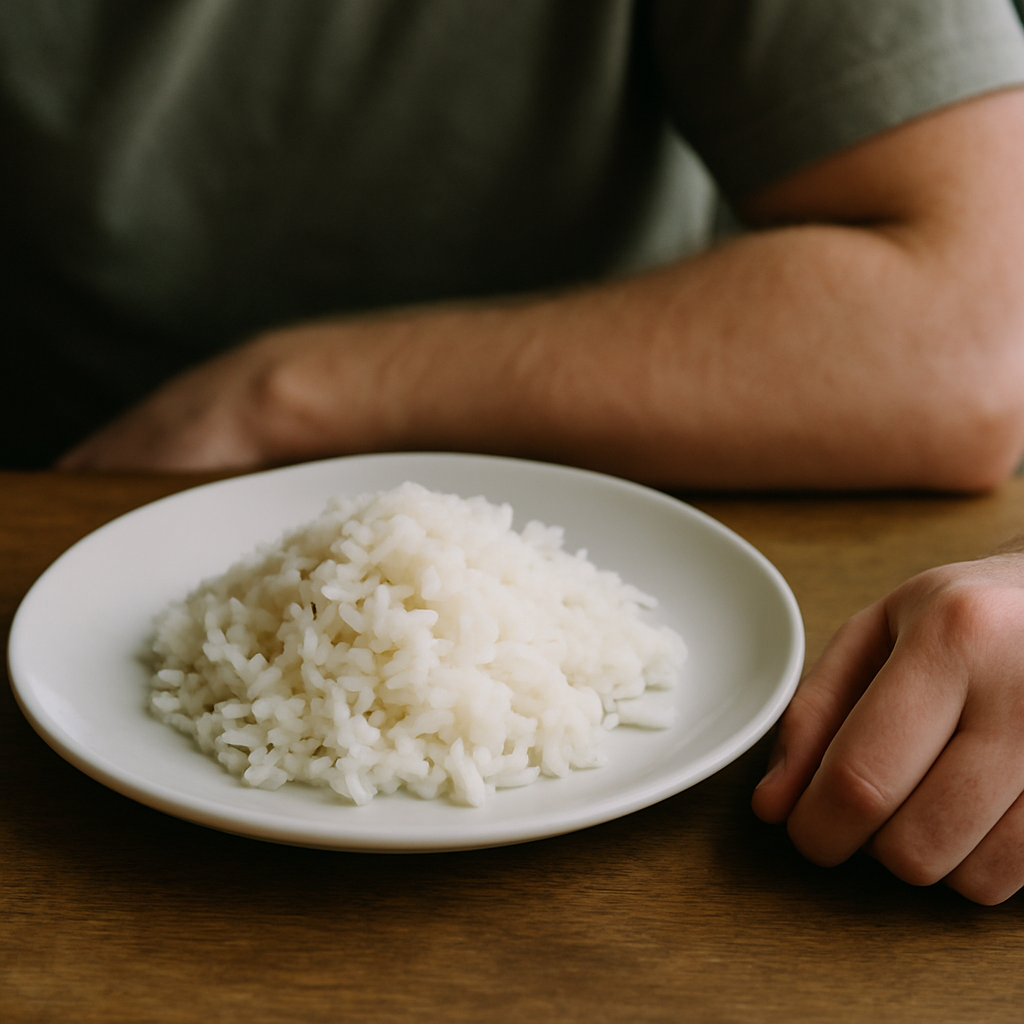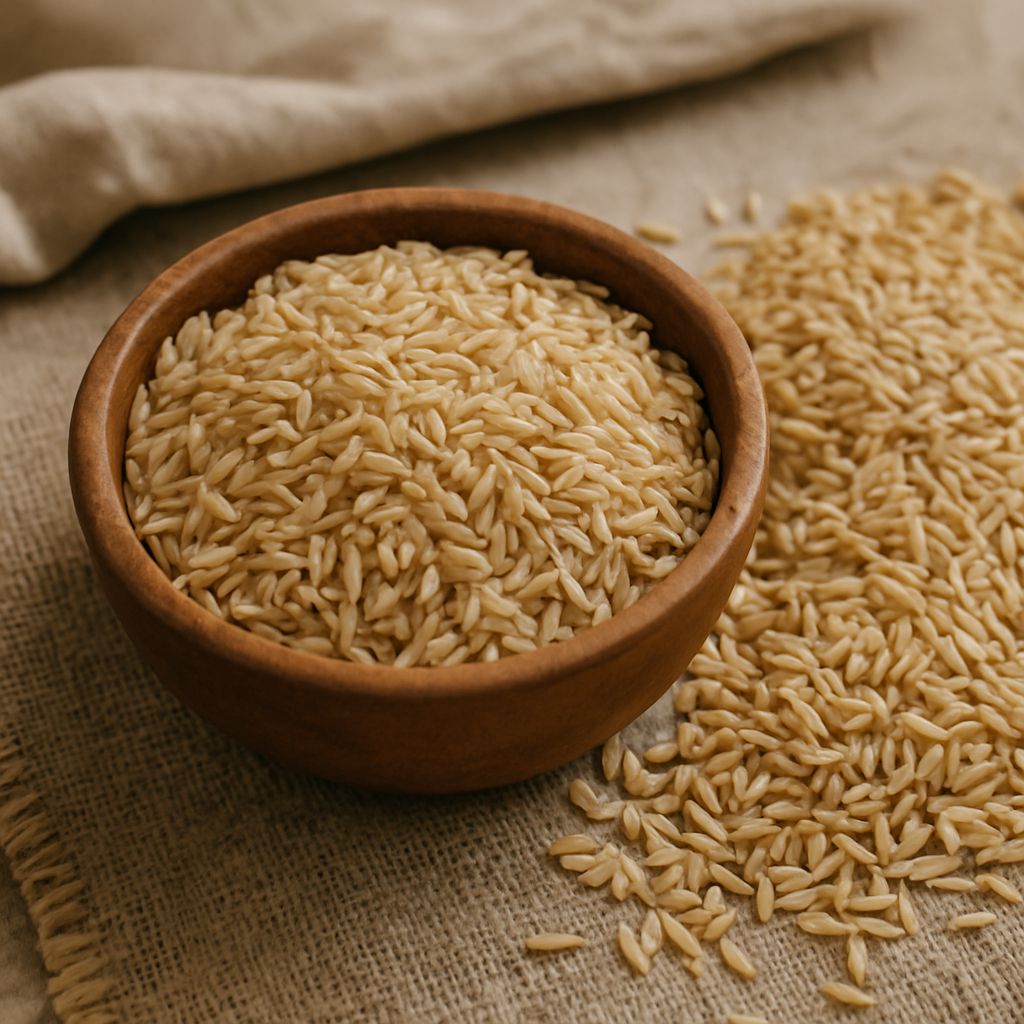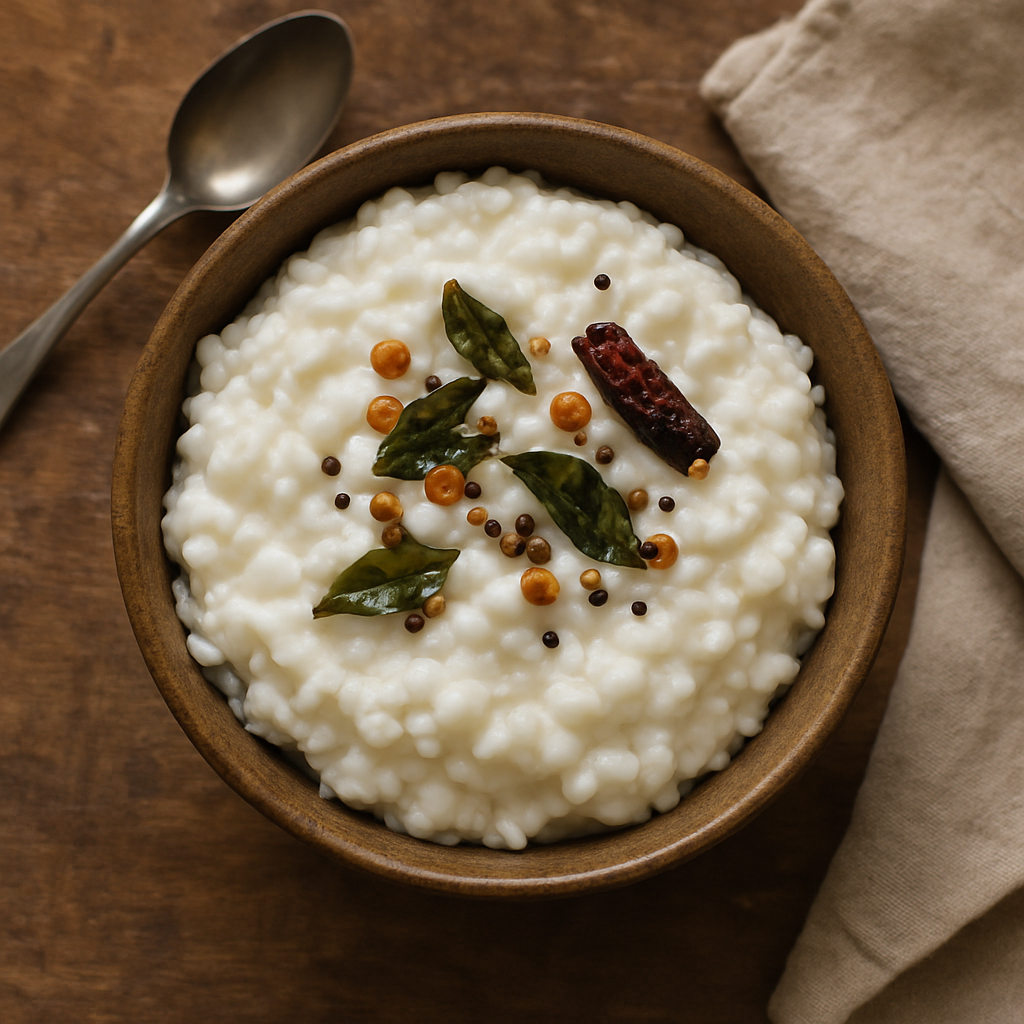Is Rice Good for Piles? Ayurvedic View on White, Brown, and Curd Rice

If you’ve ever dealt with piles (aka hemorrhoids), you know how uncomfortable—and sometimes downright painful—they can be. And when it comes to managing this condition, diet plays a huge role. One question that keeps popping up is: is rice good for piles? Or more specifically—can we eat rice in piles, or should we avoid it completely?
Spoiler alert: rice can be both a friend and a foe when you're dealing with piles, depending on the type of rice and how you prepare it. Ayurveda, the ancient Indian system of medicine, actually has a lot to say about rice for piles, especially when it comes to white rice, brown rice, and that beloved comfort dish—curd rice.
So, let’s break it down, explore the science and tradition behind it, and help you figure out which rice is best for relief and healing. After all, no one wants to be in pain after a meal, right?

Is Rice Good for Piles According to Ayurveda?
Ayurveda views food not just as fuel, but as medicine. When it comes to piles—known as Arsha in Ayurvedic terms—what you eat can either soothe the condition or make it worse. Rice, interestingly, holds a unique position.
Rice in Piles: Cooling or Constipating?
In Ayurveda, piles are often linked with an imbalance in the Pitta and Vata doshas. These energies control digestion and elimination. Foods that are dry, spicy, or constipating aggravate the problem, while cooling, soft, and moist foods are recommended.
So where does rice fit into all this?
Well, rice is good for piles in many cases because it is soft, easy to digest, and helps bind stools when prepared properly. However, it depends on the type of rice you choose. Not all rice is created equal!
Some people ask, “Can I eat rice in piles even if I feel bloated or constipated?” The answer lies in what kind of rice you eat, and how you eat it. While white rice for piles is generally gentle on the gut, it can sometimes lack the fiber you need for smoother bowel movements. On the flip side, brown rice good for piles thanks to its fiber content—but it may not suit everyone, especially those with a sensitive stomach.

Don't wait or self medicate. Start chat with Doctor NOW
White Rice vs Brown Rice for Piles: What’s Better?
Let’s dig into one of the most hotly debated topics when it comes to hemorrhoid-friendly diets—white rice vs brown rice.
Is White Rice Good for Piles or Should It Be Avoided?
White rice gets a bad rap for being low in fiber, and honestly, that’s fair. But here’s the twist—white rice is good for piles when you’re dealing with acute pain or irritation. It's soft, low-residue, and doesn’t strain the digestive system. That’s why rice in piles diets often recommend starting with plain, well-cooked white rice.
However, if eaten excessively or without fiber-rich sides like cooked veggies or dal, it can lead to constipation. So moderation is key here.
A bowl of white rice with ghee and lightly spiced moong dal? That’s a soothing, classic Ayurvedic combo for piles.
Brown Rice Good for Piles: Fiber and Digestion Benefits
Now let’s flip the coin. If white rice is easy on the gut but low in fiber, what about its browner, chewier cousin?
Brown rice for piles is often recommended by modern nutritionists because it retains the outer bran layer that's full of fiber. Fiber helps soften the stool, making it easier to pass—which is basically the holy grail when you have piles. No one wants to spend 20 minutes in the bathroom wincing in pain, right?
That said, not everyone's digestive system can handle brown rice that well, especially if it's not cooked properly. Some people feel gassy or bloated after eating it. Ayurveda would say this might aggravate Vata dosha, which isn’t ideal for piles.
So while brown rice is good for piles in terms of fiber, it needs to be soaked and cooked thoroughly to reduce any roughness. A helpful tip? Add a teaspoon of ghee while cooking or after serving. It helps lubricate the gut and reduces dryness.
But don’t make the mistake of switching to only brown rice overnight. Ease into it gradually to give your body time to adjust.

Curd Rice and Piles: Soothing or Irritating?
Ah, curd rice. That creamy, tangy, comforting dish many of us turn to when our stomachs feel “off.” But when you're battling piles, should it be on your plate or off the menu?
Is Curd Rice Good for Piles or Not?
The answer might surprise you.
Curd rice is good for piles when prepared correctly. The probiotic nature of curd helps promote healthy gut bacteria, which can aid digestion and keep bowel movements regular—something every piles patient is aiming for. Plus, curd has a cooling effect on the body, which is especially helpful if your piles are aggravated by excess heat (or Pitta imbalance, as Ayurveda calls it).
However, curd can also be mucus-forming and heavy to digest for some, especially when eaten cold or at night. So is curd rice always safe?
Not exactly.
If you're wondering “is curd rice good for piles in all cases?”—the honest answer is no. People with chronic constipation or sluggish digestion may find that curd worsens their symptoms. That’s why curd rice for piles should always be served warm, ideally during lunch hours when digestion is strongest.
Add some cumin, a pinch of black pepper, and avoid adding sour curd. Use fresh curd and mix it with well-cooked white rice for best results. It’s gentle, healing, and won’t cause any surprise flare-ups (well, most of the time!).
So in short: is white rice good for piles? Yes, in moderation. Is curd rice is good for piles? Usually, if warm and fresh. And brown rice good for piles? Definitely, if your gut agrees with the extra fiber.
Can I Eat Rice in Piles for Long-Term Relief?
So, can I eat rice in piles every day? Or will it eventually backfire?
This is where things get a bit nuanced. Yes, rice is good for piles, but how and how often you eat it makes a big difference. For long-term relief, the goal is to maintain soft, regular bowel movements without irritating your digestive tract. And that’s where rice can shine—or totally flop.
White rice for piles is great during flare-ups because it's gentle. But if you're eating only plain white rice daily with no fiber or veggies, you might find yourself back where you started—with constipation and, you guessed it, another pile-up (pun intended).
Meanwhile, brown rice for piles helps prevent constipation due to its fiber, but it might not be ideal during an acute phase when your gut feels sensitive. So, mixing it up depending on your current condition is the smart move.
And let’s not forget curd rice is good for piles if you have healthy digestion and consume it the right way.
So yep, you can eat rice in piles, even every day, but keep it balanced. Rotate between white and brown rice, always cook it well, and pair it with gut-friendly foods like ghee, lentils, or soft-cooked veggies.
How to Prepare and Eat Rice for Piles Patients
Alright, here’s the part that most articles skip: how to prepare rice when you have piles. Because it’s not just about what you eat—it’s about how you make it and when you eat it.
🔹 Cooking Tips:
-
Soak rice for at least 30 minutes before cooking—it reduces cooking time and makes digestion smoother.
-
Use 1:2 ratio of rice to water for a softer consistency (slightly mushy is better than dry).
-
Add ½ tsp of ghee after cooking; it reduces dryness and soothes the gut.
-
Avoid spicy or oily additions. Skip pickles, deep-fried items, or too much chili.
🔹 Eating Tips:
-
Eat warm, fresh rice—avoid reheating it multiple times.
-
Don’t eat rice late at night. It can slow digestion and trigger bloating.
-
Pair rice with fiber-rich and moist accompaniments: think moong dal, steamed veggies, or soft spinach curry.
These small tweaks can make a big difference over time. Rice doesn’t need to be the villain—it can be the hero of your piles-friendly diet!
Conclusion
So, after all that—is rice good for piles?
Yes, but it's not a one-size-fits-all answer.
White rice is good for piles when your gut is irritated and you need something light and easy to digest. Brown rice good for piles when you’re trying to prevent constipation and keep things moving. And curd rice for piles is kind of the wildcard—it can help, but only if your digestion can handle it and it's eaten correctly.
Listen to your body. Notice how it reacts. Keep your meals balanced, and you might just find rice is more of a remedy than a risk.
FAQs
What type of rice is best for hemorrhoid relief?
During flare-ups, white rice is gentler and easier on the gut. For prevention, brown rice offers more fiber and can help maintain regular bowel movements. You can rotate between the two depending on your symptoms.
Can I eat curd rice if I have piles?
Yes, curd rice is good for piles when it's fresh, warm, and eaten during lunch. Avoid sour or cold curd, and add spices like cumin or black pepper for better digestion.
How often can I eat rice with piles?
You can eat rice daily, but vary the type and pair it with vegetables, lentils, or healthy fats. Don’t rely on plain rice alone, or it might cause more harm than help over time.
Feeling more confident about your rice choices? Share this article with friends or family who are dealing with piles—it might be exactly what they need to hear right now.
Got any more questions?
Ask Ayurvedic doctor a question and get a consultation online on the problem of your concern in a free or paid mode.
More than 2,000 experienced doctors work and wait for your questions on our site and help users to solve their health problems every day.

